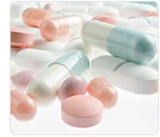
Several studies have investigated the impact that hormones play on cardiovascular disease and coronary heart disease in women who have experienced menopause. In Europe and the United States, these are the leading causes of death in woman who have experienced menopause, as well as men. For women who have experienced menopause, the risk that they will develop coronary heart disease at some point in their life is 32%. Ironically, women fear developing breast cancer more, although they are three times as likely to develop coronary heart disease. Since many women who are in the throes of menopause or who have finished menopause take hormones such as estrogen, it is important to establish what effect, if any, hormones have on cardiovascular disease and coronary heart disease.
A Wilson et al. 1985 observational study explored the effect that hormone use has on death rates from cardiovascular disease on women who are post menopause and between the ages of 50 to 80 years old. Women who used hormones had a more than fifty percent higher rate of death due to cardiovascular disease and were twice as likely to suffer a stroke than women who did not use hormones. The effect that hormone use plays on post-menopause women was even more pronounced in women who smoke. The study concluded that “the potential drawbacks” of postmenopause hormone therapy “should be considered carefully before recommending its widespread use. However, few paid attention to this conclusion about hormones and menopause because it went against the grain of most other studies which suggested benefit rather than harm from hormone use.

The 2002 Framingham Study expands on the relationship between hormones, menopause and cardiovascular disease. Among other things, its findings suggest that women undergoing menopause are at a higher risk for cardiovascular disease compared with premenopause women of the same age. The study also suggests that there is no difference in the risk for cardiovascular heart disease between women who have had natural menopause and surgical menopause. This latter finding in particular suggests that something more than the deficiency of the hormone estrogen is at work in the relationship between menopause and cardiovascular heart disease. It also found that women who used hormones after menopause had twice the risk of dying from cardiovascular heart disease than women who did not receive these hormones, confirming the results of the 1985 study.
A number of explanations have been offered for these negative findings, including advanced age of the sample populations of menopause women, inadequate hormone therapy treatment and inadequate length of the trial. More studies should be done to explore the link between hormones, menopause and cardiovascular disease, particularly its relationship between natural menopause and surgical menopause women.